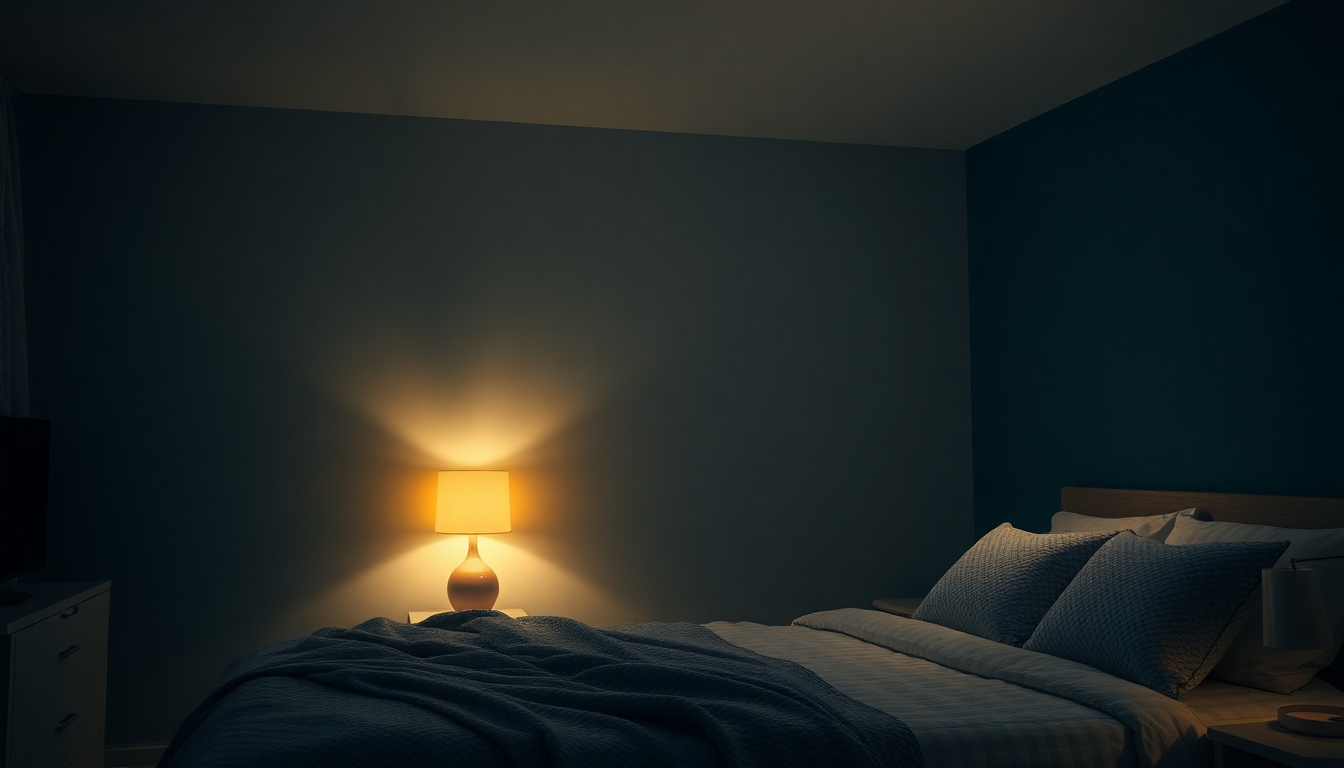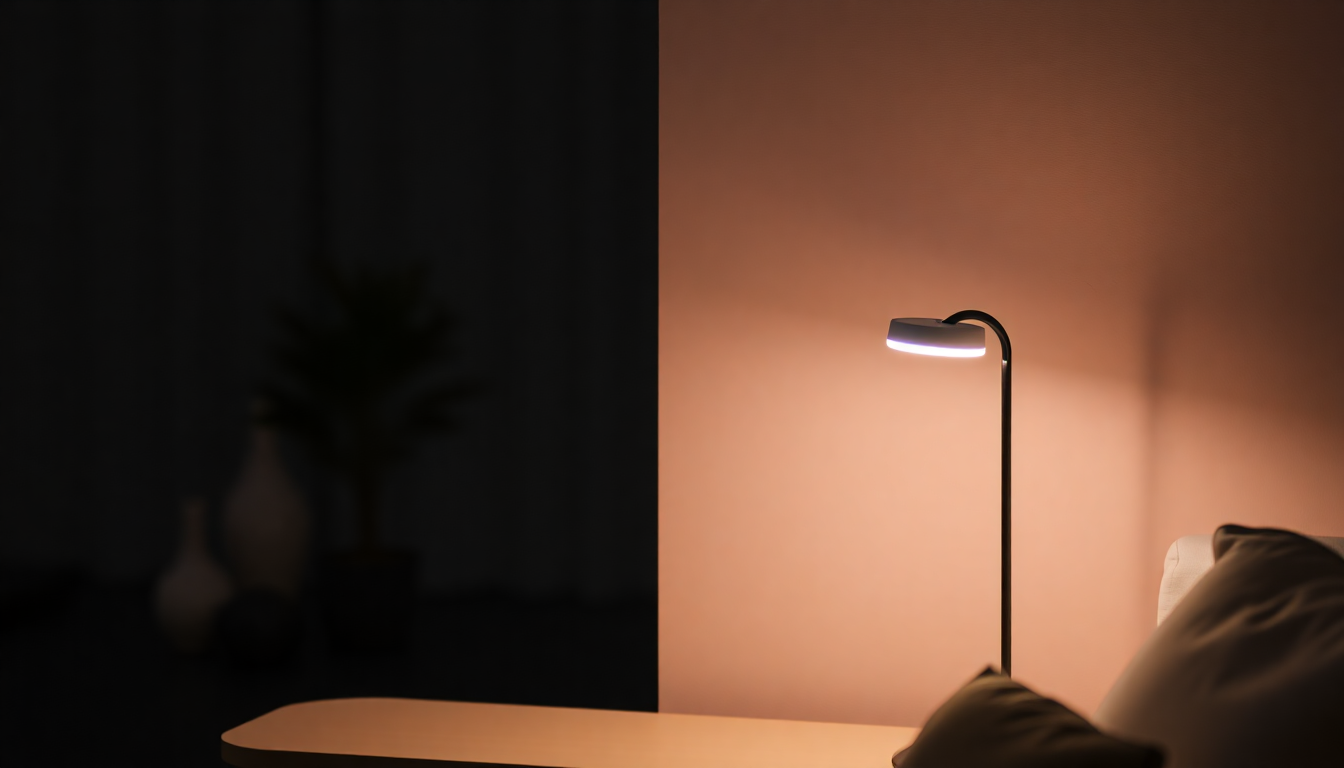Introduction
As smart home technology continues to evolve rapidly, the ways we improve both our living environments and energy consumption habits have become more innovative and efficient. Among the myriad of smart devices designed to enhance daily life, smart rechargeable night lights have emerged as a powerful tool that combines wellness benefits with energy conservation. These compact, advanced lighting solutions use cutting-edge wireless technology to transform how we illuminate our homes during nighttime hours, offering not only convenience but also significant health and environmental advantages.
This comprehensive guide delves into the technology behind smart rechargeable night lights, explores their myriad benefits for home wellness, explains their critical role in energy efficiency, and discusses the future trends shaping their development and adoption.
Understanding Smart Rechargeable Night Lights
Smart rechargeable night lights are modern lighting devices that marry energy-efficient LED technology with wireless connectivity and rechargeable power sources. Unlike traditional night lights that rely on fixed plugs or disposable batteries, these devices operate on rechargeable batteries that can be powered via USB or wireless charging stations, freeing users from the hassle of frequent battery replacements or inconvenient wiring setups.
The 'smart' aspect refers to their integration with wireless communication protocols such as Wi-Fi, Bluetooth, or Zigbee, allowing users to control and customize lighting remotely using smartphones, tablets, or voice assistants. Features often include adjustable brightness levels, color temperature tuning, motion detection, scheduling, and even integration with broader smart home ecosystems.
How Smart Rechargeable Night Lights Enhance Home Wellness
Lighting plays a crucial role in human health, influencing mood, sleep quality, and overall well-being. Smart rechargeable night lights are designed to optimize these aspects in the following ways:
- Circadian Rhythm Support: These night lights can be programmed to emit warm, low-intensity light in the evening to support the body's natural melatonin production, encouraging restful sleep. Conversely, cooler light tones can be used in the morning to help wake the body gently.
- Minimizing Sleep Disturbance: Unlike traditional lighting, which can be harsh and disruptive, smart night lights provide subtle illumination that allows for safe navigation in the dark without fully waking the brain.
- Customizable Ambiance for Stress Reduction: The ability to change colors and adjust brightness means users can create calming environments that help lower stress and anxiety levels, promoting relaxation after a long day.
- Enhanced Safety: Motion-activated smart night lights illuminate pathways automatically, reducing the risk of falls or accidents, especially important for children, elderly individuals, or those with mobility challenges.
- Improved Mental Health: Proper lighting can positively affect mood and reduce symptoms of seasonal affective disorder (SAD). Smart night lights can be integrated with therapeutic light settings to support mental wellness.
Advanced Energy Conservation Features
Smart rechargeable night lights are exemplary models of energy efficiency, incorporating several features that reduce power consumption and environmental impact:
- Rechargeable Battery Systems: By utilizing rechargeable lithium-ion or similar batteries, these lights eliminate the waste and cost associated with disposable batteries. Users can easily recharge the units via USB or wireless charging pads, making them highly sustainable.
- LED Technology: LEDs are inherently energy-efficient, consuming up to 80% less energy than incandescent bulbs while providing long-lasting illumination. This drastically reduces electricity bills and carbon footprints.
- Intelligent Automation: Motion sensors ensure that the lights only turn on when movement is detected, preventing unnecessary energy use. Additionally, timers and scheduling allow users to restrict lighting during certain hours.
- Remote Control and Monitoring: Wireless connectivity enables users to switch lights off remotely if forgotten, further preventing wasted energy.
- Integration with Smart Home Energy Systems: When connected to home energy management systems, smart night lights can work in concert with other devices to optimize overall electricity consumption patterns.
The Role of Advanced Wireless Technology in Smart Night Lights
Wireless technology is the backbone that empowers smart rechargeable night lights with their versatility and intelligence. Different protocols offer unique advantages:
- Wi-Fi Connectivity: Enables direct internet connection for remote access, firmware updates, and integration with cloud services.
- Bluetooth: Offers low-energy, short-range communication ideal for quick pairing and direct control from nearby devices without internet dependency.
- Zigbee and Z-Wave: These mesh networking standards provide robust, low-power communication ideal for integrating multiple smart devices throughout the home with minimal interference.
Wireless communication facilitates numerous advanced features:
- Remote Customization: Adjust light settings anytime, anywhere, through mobile apps.
- Voice Control: Compatibility with voice assistants such as Amazon Alexa, Google Assistant, and Apple Siri simplifies operation and increases accessibility.
- Real-Time Status Updates: Receive notifications on battery health and light status, ensuring optimal performance.
- Easy Installation and Flexibility: Without the need for wiring, smart night lights can be installed anywhere, relocated effortlessly, and scaled up with ease.
Practical Applications and Use Cases
Smart rechargeable night lights fit seamlessly into various home environments and lifestyles:
- Children’s Rooms: Soothing night lights with adjustable colors help create a comforting atmosphere for kids, reducing nighttime fears and promoting better sleep habits.
- Elderly Care: Motion-activated lights improve safety for seniors navigating at night, helping prevent falls.
- Bathrooms and Hallways: Automated illumination ensures safe transit during late-night trips without the jarring effect of bright overhead lights.
- Travel and Portability: Rechargeable and wireless design makes these lights perfect for travel, camping, or power outages.
- Energy-Conscious Households: Homeowners seeking to reduce electricity consumption can leverage smart night lights as part of a comprehensive energy-saving strategy.
Environmental Impact and Sustainability
Switching to smart rechargeable night lights aligns with growing global initiatives to reduce energy consumption and waste. The environmental benefits include:
- Reduced Battery Waste: Rechargeable batteries minimize hazardous waste and lessen the demand for raw materials used in single-use batteries.
- Lower Energy Demand: Energy-efficient LEDs combined with smart controls significantly cut electricity use, reducing greenhouse gas emissions associated with power generation.
- Longevity: Durable materials and rechargeable systems extend the lifespan of night lights, decreasing turnover and landfill contributions.
Future Trends in Smart Night Lighting
The landscape of smart night lighting is continuously evolving. Anticipated advancements include:
- Integration with AI and Machine Learning: Future devices may learn user habits and optimize lighting automatically for maximum comfort and efficiency.
- Enhanced Health Monitoring: Night lights could incorporate sensors to monitor sleep quality, air quality, or even detect falls and medical emergencies.
- Solar-Powered Options: Combining solar charging with rechargeable batteries could further reduce environmental impact and increase off-grid capabilities.
- Expanded Customization: More intricate lighting patterns and colors tailored to therapeutic and aesthetic needs.
Conclusion
Smart rechargeable night lights are much more than mere illumination tools; they are integral components of modern smart homes that enhance wellness, safety, and energy efficiency. Utilizing advanced wireless technology, these devices offer unparalleled convenience, customization, and sustainability benefits.
By adopting smart rechargeable night lights, homeowners can create healthier living environments that support natural sleep patterns, reduce stress, and prevent accidents. At the same time, they contribute to global efforts toward energy conservation and environmental protection.
In 2025 and beyond, as technology continues to advance and awareness of sustainable living grows, smart rechargeable night lights will undoubtedly become a staple in homes dedicated to wellness and ecological responsibility. For anyone looking to modernize their home's lighting system with a focus on health and energy savings, investing in these smart solutions is an intelligent, forward-thinking choice.




Dejar un comentario
Todos los comentarios se revisan antes de su publicación.
Este sitio está protegido por hCaptcha y se aplican la Política de privacidad de hCaptcha y los Términos del servicio.